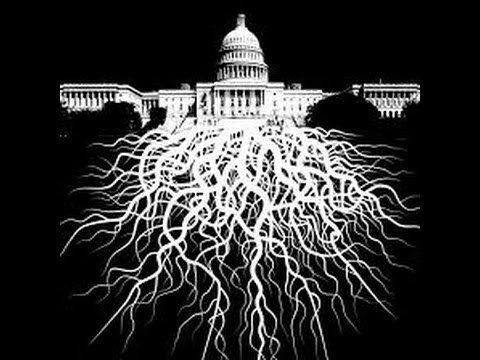I wrote this a while back:
“It was an original experiment–self-governance. Not by royalty, not by military coup, not by an aristocracy. But citizen statesmen. Serve, go back home. How far have we diverted from that path? Senators with more than 50 years in office? Congressmen paid almost 6 times the average income, for working half the year or less? With pay, retirement, and health care paid by taxpayers after they leave office, until they die? Where the largest items in our Federal budget are NOT Constitutionally enumerated (SS, Medicare, Medicaid, Welfare)? We pay farmers not to grow, we pay people not to work, and all out of Federal tax dollars. We have a confiscatory Federal Income Tax that NONE of the Founders would have endorsed, leading to a completely unheard of size of government. A government so in debt, that the accumulated debt is greater than a full year of GDP–and not one plan to address it, in any way, from our legislators. None. The case can be made that the experiment of the USA has already failed, decades ago, and we’re just coasting on the fumes. The only guess is when we come to a complete halt—when, not if.”
I’d like to elaborate upon this theme. Due to the fallibility of humans, maybe this is the inevitable, logical, predictable, conclusion of self-government. Let’s dig.
The United States of America was an odd duck—the first of its kind, really. Citizen freedom is NOT the default setting. While other countries have had and still have ‘constitutions’, ours was the first to attempt to limit government, not the ‘subjects’. The US Constitution defines three co-equal branches of government: the Legislative Branch (Congress) to write laws; the Executive Branch (the President) to enforce laws; and the Judicial Branch (Court system, up to the Supreme Court) to adjudicate and interpret the laws. The intention was clear: the three Branches would keep the others from over-reaching their boundaries, as it would encroach upon their domains.
But almost immediately upon ratification, each Branch began to creep—to test those boundaries, if you will. In effect, “How much can I get away with?” Our first President, George Washington, issued Executive Orders. At the time, they were clarifications of how to enforce existing law, and the priorities of the Executive Branch. I wonder if Washington foresaw a few centuries later, EOs would be used to create new law? In any case, Executive Branch creep continues to this day. President Barack Obama committed the US to the Paris Accords, a climate change agreement. Yet, in the Constitution, the President can not agree to a treaty without the ‘advise and consent’ of the Senate. This ‘Accord’ would spend billions of taxpayer dollars, yet the bill did not originate in the House of Representatives, which is where the Constitution says all spending bills should arise. This ‘Accord’ was exited by President Donald Trump, and is now re-joined by President Joe Biden. All of these actions were performed without Congressional input.
In the famous court case, Marbury v Madison (1803), the Supreme Court took it upon itself to determine whether a law was Constitutional or not. Note that that role is not defined in the US Constitution. The Supreme Court’s original task was to resolve disagreements between States, between the US and the Indian tribes, and between the US and foreign entities. Fast forward to the 21st century, and it appears that the Supreme Court’s lone function is to establish Constitutionality of laws. Out of this process, the Supreme Court has struck down existing law, and even created new law. The most glaring example of this was the Federal legalization of abortion in 1973. This ‘legislation’ did not come out of Congress, who has the sole role of creating new law. It did not cross the President’s desk, giving him the ability to sign or veto it. Nine Supreme Court justices bypassed the entire Constitutional method of law creation. Under what authority did they do this?
The Legislative Branch is not immune from this creep. By reading the Constitution, you would think that Congress has enumerated powers, specifically outlined in that document. The Commerce Clause states that Congress shall have power “[t]o regulate Commerce with foreign Nations, and among the several States, and with the Indian Tribes.” The Bill of Rights even further limits what Congress can write laws upon. The 10th Amendment specifically states that “The powers not delegated to the United States by the Constitution, nor prohibited by it to the States, are reserved to the States respectively, or to the people.” Those limits are now so routinely exceeded, it is as if they never existed. Congress can now write laws to regulate virtually anything, from the water pressure of your toilet, to forcing you to purchase health insurance. It is estimated that between 80 and 90 percent of Federal spending is outside of the Constitutional enumerated powers. All Congress had to do was find a willing Supreme Court to bless their overreach. And they did. Wickard v Filburn in 1942 broke the Commerce Clause entirely. In 1935, the Social Security Act was deemed Constitutional, yet no word of retirement or welfare funding exists in the Constitution. And in 2012, the Supreme Court upheld the Affordable Care Act (Obamacare), mandating all citizens must purchase a minimum level of health insurance. If you can point out in any of the 3 Articles of the US Constitution where this is a legitimate function of our government, please alert said text to this author. Perhaps the beginning of the end was the practice of Congress excluding itself from the very laws they pass.
To circle back to the purpose of this writing: is this the inevitable logical end of self-government? As we are decidedly human, was this always the predictable end of this process? Yes, power corrupts, and absolute power corrupts absolutely. And, with no real policing mechanism in place to keep ANY of the three Branches of government in their respective lanes, it should come as no surprise that they simply do as they choose. Maybe this is why this form of government had never been tried: the flaws of man simply cannot be legislated away. Other than term limits, perhaps the largest flaw of the US Constitution is the complete lack of The People to police, or even restrain, any of the Branches of government. Yeah, we can vote out our legislators and Presidents, only to replace them with new ones. We don’t even have that ability with Supreme Court justices—other than impeachment or retirement, they serve until they die. But The People do not have any type of National referendum ability. They cannot create law themselves, other than the never-exercised Article V Convention of States, and that is limited to a Constitutional Amendment. The People are simply left to abide by any law Congress, the President, and The Court sees fit. We pay every one of them, regardless of their level of performance. And they now drift so far from the Constitution that created their roles, its as if that document was written on an etch-a-sketch (millennials, ask your parents).
Welcome!Log into your account

























